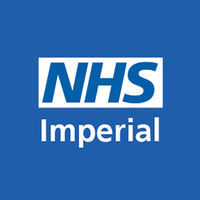Imperial College Healthcare Nhs Trust

- Country
- 🇬🇧United Kingdom
- Ownership
- Private, Subsidiary
- Established
- 1823-01-01
- Employees
- 1K
- Market Cap
- -
- Website
- http://www.imperial.nhs.uk
Clinical Trials
99
Trial Phases
5 Phases
Drug Approvals
0
Drug Approvals
No drug approvals found
This company may not have drug approvals in our database
Clinical Trials
Distribution across different clinical trial phases (67 trials with phase data)• Click on a phase to view related trials
Mechanisms Affecting the Gut of Preterm Infants Receiving Blood Transfusion With Different Enteral Feed Interventions
- Conditions
- NEC - Necrotizing EnterocolitisNECPreterm BabiesPreterm Infant Health
- First Posted Date
- 2025-09-25
- Last Posted Date
- 2025-09-25
- Lead Sponsor
- Imperial College Healthcare NHS Trust
- Target Recruit Count
- 270
- Registration Number
- NCT07191678
- Locations
- 🇬🇧
Queen Charlotte's & Chelsea Hospital, Neontal Unit, London, United Kingdom
Ovarian Cancer Radiomics Approach in CT Led Evaluation
- Conditions
- Ovarian Cancer
- First Posted Date
- 2025-02-10
- Last Posted Date
- 2025-06-27
- Lead Sponsor
- Imperial College Healthcare NHS Trust
- Target Recruit Count
- 168
- Registration Number
- NCT06817174
- Locations
- 🇬🇧
Imperial College NHS Healthcare Trust, London, United Kingdom
Cerebral Oxygen Saturation Monitoring During Optimum Cord Management in Preterm Infants
- Conditions
- Pre-Term
- First Posted Date
- 2024-07-29
- Last Posted Date
- 2024-07-29
- Lead Sponsor
- Imperial College Healthcare NHS Trust
- Target Recruit Count
- 40
- Registration Number
- NCT06526091
- Locations
- 🇬🇧
Imperial College Healthcare NHS Trust, London, United Kingdom
Pipelle® Under Ultrasound Guidance (PUG) to Investigate Post-menopausal Bleeding.
- Conditions
- Endometrial HyperplasiaPost-Menopausal BleedingEndometrial Cancer
- First Posted Date
- 2024-07-15
- Last Posted Date
- 2024-07-15
- Lead Sponsor
- Imperial College Healthcare NHS Trust
- Target Recruit Count
- 92
- Registration Number
- NCT06501846
- Locations
- 🇬🇧
Queen Charlotte's and Chelsea Hospital, Imperial College Healthcare Trust, London, United Kingdom
Delirium After Cardiac Surgery in Intensive Care Units
- Conditions
- Post Operative DeliriumCardiac SurgeryIntensive Care Unit Delirium
- First Posted Date
- 2024-04-09
- Last Posted Date
- 2024-04-11
- Lead Sponsor
- Imperial College Healthcare NHS Trust
- Target Recruit Count
- 30
- Registration Number
- NCT06355570
- Locations
- 🇬🇧
Imperial College Healthcare NHS Trust, London, United Kingdom
- Prev
- 1
- 2
- 3
- 4
- 5
- 16
- Next
News
GSK and Fleming Initiative Launch £45M AI-Powered Research Program to Combat Antimicrobial Resistance
GSK and the Fleming Initiative announced six new research programs using advanced AI to tackle antimicrobial resistance, with £45 million in funding over three years starting in early 2026.
SepTiC Trial Investigates Enhanced Treatment Strategies for Sepsis Patients
The SepTiC study aims to refine sepsis treatment by addressing key questions regarding rapid testing, fluid management, and immune system support.
